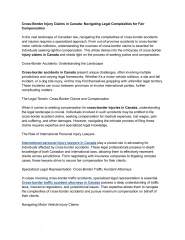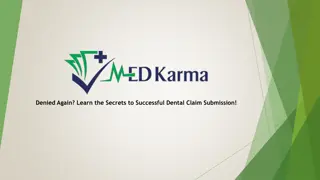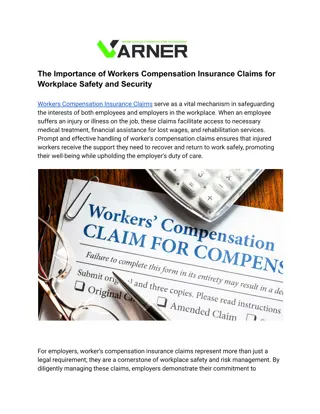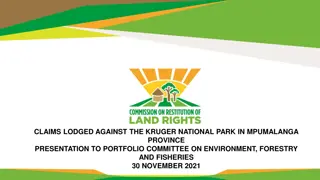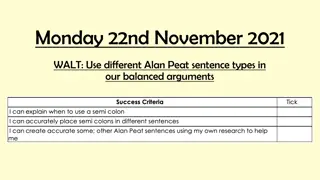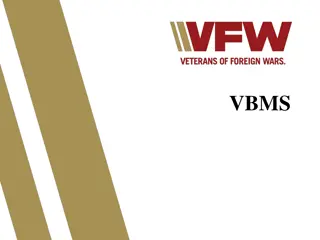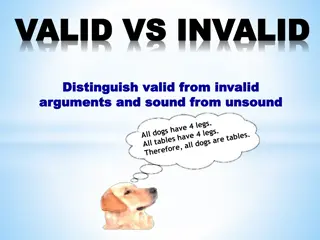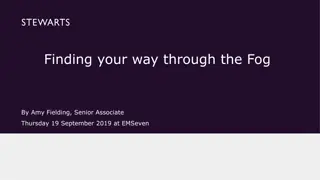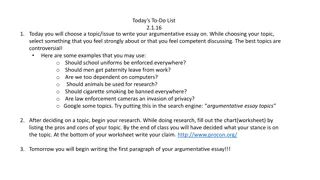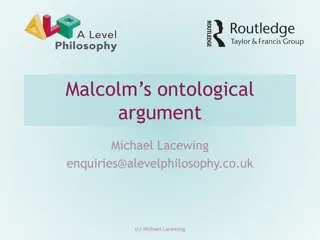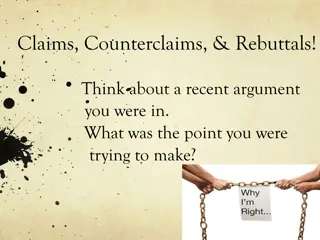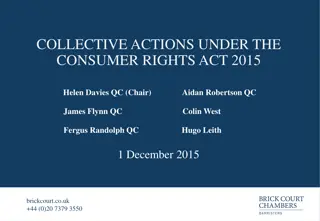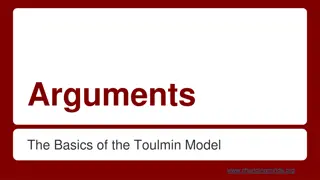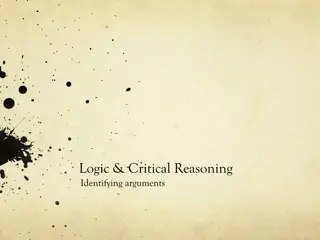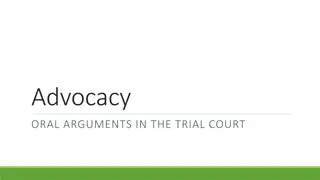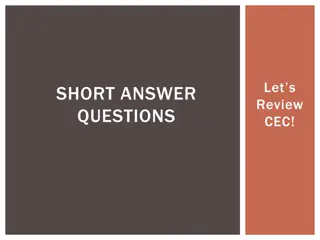Claims and Crafting Strong Arguments
Learn about the characteristics of strong claims, key types of claims, and how to make arguments more compelling. Understand the importance of nuanced claims in persuasive writing.
Download Presentation

Please find below an Image/Link to download the presentation.
The content on the website is provided AS IS for your information and personal use only. It may not be sold, licensed, or shared on other websites without obtaining consent from the author.If you encounter any issues during the download, it is possible that the publisher has removed the file from their server.
You are allowed to download the files provided on this website for personal or commercial use, subject to the condition that they are used lawfully. All files are the property of their respective owners.
The content on the website is provided AS IS for your information and personal use only. It may not be sold, licensed, or shared on other websites without obtaining consent from the author.
E N D
Presentation Transcript
What is a Claim? A Resource for Use with CRWP Mini-Units and Materials Jean Wolph NWP College-Ready Writers Program
CLAIM = A position that can be argued. Strong claims are compelling, debatable and defensible. Because it s not a fact. Can be supported with recent reliable evidence Evokes interest
Strong claims are compelling, debatable and defensible. Other Key Characteristics of a Strong Claim: Identifies the writer s stance (position) Is clear and specific (shows the direction of the writer s thinking) May use an umbrella term that relates to the major points to be made instead of listing all of your evidence Avoids terms such as I think or I feel
3 Major Sample Key Words Example Types of CLAIMS Fast Food is unhealthy. IS or IS NOT ARE or ARE NOT FACT (writer is trying to prove something is true) Tacos are a healthier choice than hamburgers. BETTER/BEST, MORE/LESS, WORSE/WORST --IER or IEST words VALUE (requires writer to share or establish criteria) Schools should serve healthier foods. SHOULD/SHOULD NOT POLICY (writer is trying to change the way things are)
Are These Good Claims? Kentucky should raise the driving age to 18. In most states, teens can drive at 16. No! This is a statement of fact. Yes! This is a compelling, debatable, defensible claim.
Making Claims STRONGER Instead of Try I think Reality TV is good. The popularity of Reality TV proves that it meets the audience s needs. Why? We can t argue against this statement. It is a fact that you like it. Reality TV is fake. Because Reality TV is fake, its lessons are not always real. We should therefore limit children s exposure to it. Why? This is a common complaint and flunks the compelling requirement. So what? You won t catch me watching Reality TV because of stereotyping. Viewers should avoid Reality TV because it promotes stereotyping. Why? Great angle, but so what? Go beyond yourself to make this debatable!
The strongest claims are often nuanced. Nuanced claims are more complex. They may acknowledge other perspectives: Although driving has been considered a rite of passage, recent studies challenge the notion that age alone is a reliable measure of driving readiness.
The strongest claims are often nuanced. Nuanced claims are more complex. They may limit the claim or set boundaries for its application. Claim: Drivers licenses should not be issued before age 19. Nuanced Claim: In cases of teens persistent truancy or misdemeanor convictions, local communities should delay issuing drivers licenses until after graduation or at age 19.
Making Claims STRONGER In the classroom: Let s brainstorm a class list of claims for the topic we re studying. TIPS for Success: Test to make sure that each one is a CLAIM (takes a position) rather than just a fact or research finding from an article. Test to make sure the claim is debatable, defensible, and compelling; specific; other-directed. Check the list to make sure there are options for a variety of opinions.
Refining Claims Try frames such as these to narrow your focus, acknowledge the opposition, and/or limit the claim: Because of ______, we should ______. Because of ______, we should not ______. Although ________, we should ______. Although ________, we should not ______. Even though _________, parents should ..
Making Claims NUANCED Let s test our claims and revise, if needed: Test to see whether we can refine the claim by acknowledging an opposing position and/or limiting the claim to particular situations or audiences.


